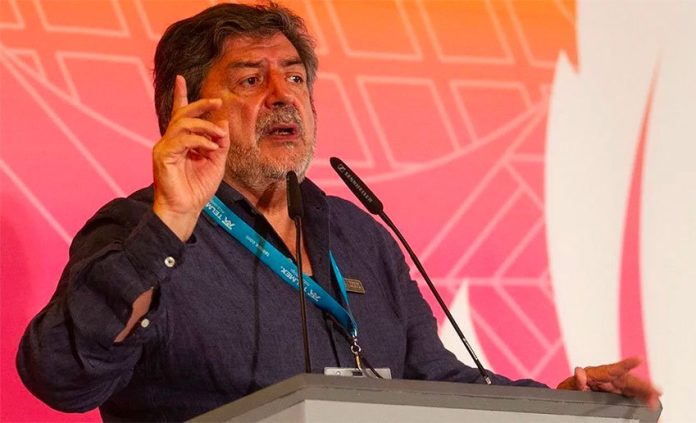The costs of initial studies for construction of the Maya Train are below international standards for similar projects, according to the head of the National Tourism Promotion Fund (Fonatur).
New statistics provided last week by Fonatur – which is managing the ambitious Yucatán peninsula rail project – showed that study costs have shot up 710% to 972 million pesos (US $50.8 million) from 120 million pesos (US $6.2 million) five months ago.
But Rogelio Jiménez Pons sees no reason for concern, stating that the latter figure was merely a preliminary forecast from the former government – “a favor” to ensure that initial costs for the current administration’s signature infrastructure project were considered in 2019 budget calculations.
“A project of this nature normally involves costs for studies and plans of 2% to 5% of the total cost of construction,” he said.
“For the specific case of the Maya Train we’re thinking that in consideration of the 150 billion pesos [US $7.9 billion] that the project will cost, the maximum cost of the studies shouldn’t exceed 3 billion pesos,” Jiménez added.
“I calculate that we’ll be far [short] of that [figure] . . . If we pass 3 billion pesos, then yes, we would be in a difficult situation.”
The Fonatur chief predicted that more previously unconsidered costs will arise but he also pointed out that the 972-million-peso estimate is more than 2 billion pesos short of 2% of the total projected cost for the Maya Train.
The results of the various studies for the project, including ones on social impact, soil mechanics and archaeological preservation, will inform the environmental impact statement (EIS), which is expected to be presented to the Secretariat of the Environment (Semarnat) in the last quarter of this year at the latest.
The EIS will determine the viability of building a new railroad between Escárcega, Campeche, and Cancún, Quintana Roo.
Tracks already exist between Palenque, Chiapas, and Izamal, Yucatán, meaning that new environmental studies are not needed for that section of the route, the newspaper El Economista reported.
The government has said that rehabilitation work will be undertaken to prepare the existing railroad for incorporation into the 1,500-kilometer-long Maya Train.
Jiménez said that while that work is being carried out indigenous people who live in communities near the train’s route will be consulted about the project in accordance with the International Labor Organization’s Indigenous and Tribal Peoples Convention.
Late last year, indigenous communities on the Yucatán peninsula rejected the project, declaring that nobody had asked their opinion about it, while environmental experts have warned that construction of the railroad poses risks to the region’s underground water networks and the long-term survival of the jaguar.
In March, the Mexican Institute for Competitiveness (Imco), a think tank, said in a report that “if planning is not optimal,” the project could cost almost 1.6 trillion pesos (US $85 billion), an amount more than 10 times that estimated by the federal government.
Source: El Economista (sp)
